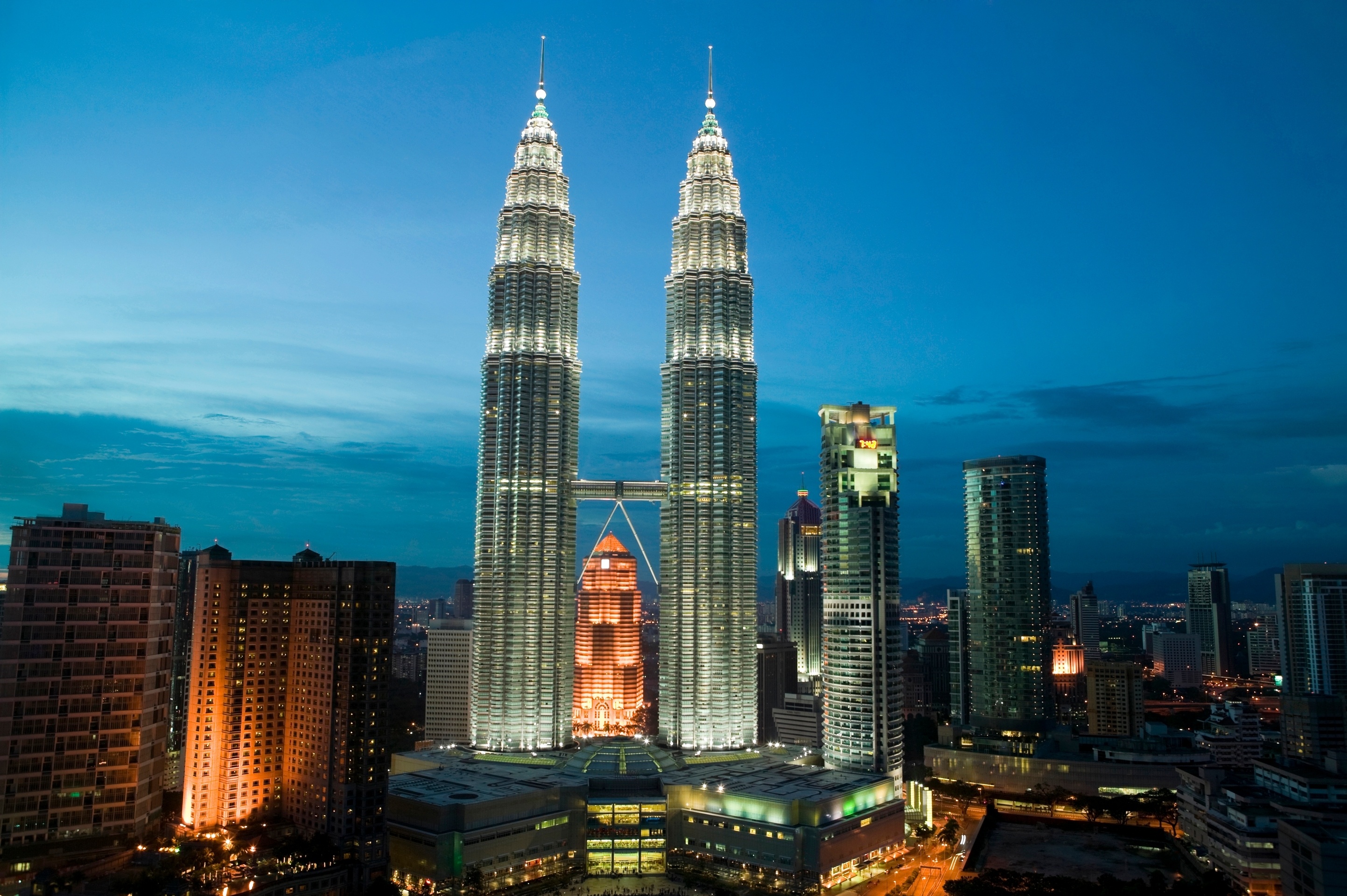Thailand's Lifestyle & Investment Appeal
Today, Thailand's property market sits at a fascinating intersection of lifestyle magnetism and investment sophistication. For international buyers seeking more than just square footage, the Kingdom offers something increasingly rare: the chance to own a piece of Asia's most vibrant lifestyle economy, whether that's a sleek Bangkok penthouse overlooking the Chao Phraya or a serene Phuket villa with Andaman Sea views.
Looking at the regional dynamics, Thailand has positioned itself uniquely. It's more accessible than Singapore's prohibitive 60% foreign buyer stamp duty regime, yet more structured than the fully open markets of Southern Europe. This balanced approach creates genuine opportunity, but only for those who understand the rules.
Singapore levies 60% Additional Buyer’s Stamp Duty (ABSD) on residential purchases by foreigners (in effect since Apr-2023), which has redirected some regional demand to Thai prime condominiums.
The appeal goes beyond investment metrics. International buyers are drawn to Thailand's blend of world-class hospitality, sophisticated urban infrastructure, and that intangible quality of life that turns a property purchase into a lifestyle transformation. From Bangkok's cosmopolitan energy to Phuket's championship golf courses and superyacht marinas, from Koh Samui's wellness retreats to Pattaya's beachfront accessibility, each market offers its own compelling narrative.
Hence, understanding Thailand's foreign ownership framework isn't merely administrative due diligence. It's the foundation for making a secure, compliant, and ultimately rewarding investment in one of Asia's most dynamic property markets.
Can Foreigners Buy Property in Thailand?
Yes, but.. foreigners may own a freehold condominium unit, but they cannot own land freehold under Thai law. The two main routes are: (1) freehold condominium ownership and (2) leasehold rights to land and houses.
Thailand draws a fundamental line between two property types. Condominiums offer the most direct path, with foreigners able to purchase units freehold in their own name, protected by the Condominium Act. This represents genuine ownership, complete with a title deed registered at the Land Department. Land and villas, however, require alternative structures, as direct freehold land ownership by foreigners is prohibited under Thai law.
This distinction isn't a limitation; it's a framework that channels foreign investment through established, legally secure pathways. The two primary routes for villa acquisition - long-term leaseholds and Thai-majority companies (Special Purpose Vehicles) - each serve different investor profiles and risk appetites.
Understanding which path aligns with your investment goals, lifestyle plans, and legacy intentions becomes your first critical decision. Whether you're eyeing a Bangkok investment condo or a Phuket holiday villa, the structure you choose will determine not just how you buy, but how you hold, monetise, and eventually exit your Thai property investment.
The Condo Quota: The 49% Rule
For foreigners seeking secure, straightforward ownership, the condominium quota system offers Thailand's most accessible path to property acquisition.
Defining the mechanism: Under the Condominium Act B.E. 2522 (1979), up to 49% of any registered condominium building's total saleable floor area can be owned by non-Thai nationals. This isn't about unit count but aggregate space - in a building with 100 identical units, foreigners could theoretically own 49 of them.
How it Works in Practice
The process demands precision but rewards it with security. Your entire purchase price must arrive in Thailand from an overseas source in foreign currency. Upon receipt, your Thai bank converts these funds and, for transactions exceeding USD 50,000, issues a Foreign Exchange Transaction Form (FETF or Thor Tor 3). This document isn't optional paperwork - it's your golden ticket to registration at the Land Department.
Before committing, due diligence at the Land Department verifies both the property's title deed (Chanote) and the building's foreign quota availability. The condominium's Juristic Person provides formal certification that your unit falls within the available 49% allocation. Without both documents, transfer cannot proceed.
In prime Bangkok developments along Sukhumvit or riverside locations, where luxury condos command THB 300,000 to THB 500,000 per square metre, foreign quota can saturate quickly. Similarly, new Phuket beachfront projects often see their foreign allocation claimed within weeks of launch, particularly in established areas like Bang Tao and Surin.
Benefits and Strategic Considerations
This route delivers genuine freehold ownership with full rights to sell, lease, or bequeath. Your title deed, registered in your name, provides the same legal standing as Thai ownership. It's liquid, secure, and internationally recognised.
The primary constraint is availability. In markets experiencing strong international demand - think Phuket's record 50.9% increase in new villa supply and 18.1% rise in sales during 2024, driven by Russian and Chinese buyers - foreign quota fills rapidly. While inheritance to foreign heirs is possible, they must personally qualify under the Condominium Act, including demonstrating compliant fund remittance.
Currently under government review: proposals to increase the foreign ownership quota from 49% to 75%. If enacted, this would fundamentally reshape market dynamics, expanding available inventory and potentially moderating prices in previously quota-constrained developments.
Leasehold Villas: The 30-Year Route
For those drawn to the space and privacy of landed property, the leasehold structure provides legally recognised, long-term control without requiring freehold ownership.
The fundamental framework: Thailand's Civil and Commercial Code caps registered property leases at 30 years. Any lease exceeding three years must be registered at the Land Department, where it's recorded on the landowner's title deed, creating a government-recognised "real right" that survives ownership changes.
Typical Leasehold Structure
Marketing often promotes "90-year leases" - typically structured as an initial 30-year term with two pre-agreed renewal options. Here's the crucial distinction: only the first 30 years carry guaranteed legal protection. Subsequent renewals are contractual obligations between original parties, requiring active cooperation from the landowner at renewal time for re-registration.
This creates planning considerations. A well-drafted lease with clear renewal terms strengthens your position, but enforcement against a new landowner who wasn't party to the original agreement introduces uncertainty. Smart investors factor this into their horizon planning.
A compelling feature: foreigners can legally own the physical structure on leased land. Through specific lease provisions or a separate sale of structure agreement registered at the Land Department, you own the villa itself while leasing the underlying land. This separation of land and building ownership is particularly common in Phuket's luxury villa market and Koh Samui's resort developments.
Lifestyle Appeal and Investment Reality
Leasehold offers immediate lifestyle benefits with lower entry costs. Registration fees and stamp duty total just 1.1% of the total rental value over the lease term, substantially less than freehold transfer costs. For a THB 30 million Phuket villa on a 30-year lease, you're looking at approximately THB 330,000 in registration costs versus THB 600,000+ for a freehold condo transfer.
The trade-off is finite duration impacting both legacy planning and long-term appreciation. However, Thailand's government is actively considering extending maximum lease terms to 99 years. This proposed reform would transform the villa market, providing security that closely approximates freehold ownership while maintaining foreign investment controls.
SPV & Corporate Structures
Setting up a Thai Limited Company as a Special Purpose Vehicle represents the most complex path to controlling freehold land - one that demands careful legal navigation.
The structure: Under the Foreign Business Act B.E. 2542 (1999), a company is considered "Thai" when at least 51% of shares are held by Thai nationals. Foreigners can hold up to 49%, using mechanisms like sole directorship or preferential share classes to maintain operational control.
Using a Thai company as a purchasing vehicle requires genuine Thai shareholders and compliance with the Foreign Business Act. Nominee shareholding is illegal; authorities can penalize non-compliance, including fines and orders to dispose of the property.
Compliance and Risk Factors
The critical risk: nominee shareholding. Thai law explicitly criminalises using Thai individuals who hold shares without genuine financial investment or business interest. Authorities have powers to investigate suspected shell companies. If a company is deemed a vehicle solely to circumvent foreign ownership restrictions, the structure can be invalidated with severe consequences including forced property sale, fines, and potential criminal charges.
To remain compliant, your company must operate as a legitimate business with clear commercial purpose - property development, rental operations, or hospitality services rather than passive asset holding. This means genuine business activity, proper accounting, tax filings, and corporate governance.
When SPV Structures Make Sense
This route suits specific scenarios: high-value land acquisitions where freehold control is essential, development projects requiring Thai entity ownership, or investors planning multiple property ventures. The administrative burden - annual audits, tax compliance, corporate filings - plus legal complexity make this inappropriate for simple lifestyle purchases.
The government has discussed extending maximum lease terms beyond 30 years (e.g., to 50–99 years), but no change has been enacted. Recent Supreme Court guidance limits automatic long-term lease renewals, reinforcing the current 30-year maximum per term.
Taxes, Fees & Costs
Thailand's property transfer costs are transparent and predictable, though understanding who typically pays what can strengthen your negotiation position.
Transfer Fee, Stamp Duty, and Withholding
The core transaction costs break down as follows:
Tax/Fee | Rate | Calculation Basis | Who Typically Pays | Strategic Note |
Transfer Fee | 2% | Registered Value | Split 50/50 | Negotiable in purchase agreement |
Stamp Duty | 0.5% | Registered Value | Seller | Only if SBT doesn't apply |
Specific Business Tax | 3.3% | Higher of Registered/Appraised Value | Applies if sold within 5 years | |
Withholding Tax (Individual) | Progressive | Appraised Value | Based on ownership duration Advance on corporate income tax | |
Withholding Tax (Corporate) | 1% | Registered/Appraised Value |
Understanding the seller's tax position provides negotiation leverage. A seller facing the 3.3% Specific Business Tax (property held less than five years) has less price flexibility than one exempt from SBT. Factor this into your offer strategy.
Note:Baseline statutory rates: Transfer fee 2% (shared/negotiated), SBT 3.3% (if applicable), Stamp Duty 0.5% (levied when SBT does not apply). Note: temporary transfer-fee reductions (e.g., 0.01%) have applied to sub-THB-7m properties under stimulus programs; confirm current eligibility at the time of transfer.
Rental Income Tax for Yield Investors
For investors targeting Thailand's attractive rental yields - Phuket villas generating 10-15% annually versus 5-8% for condominiums - rental income is taxed as Thailand-sourced income. After a standard 30% deduction for expenses, net income faces progressive rates from 5% to 35%.
Corporate tenants must withhold 5% of rent payments, remitting directly to the Revenue Department. Many countries maintain Double Taxation Agreements with Thailand, preventing duplicate taxation on the same income.
Rental income is taxed at progressive personal income tax rates up to 35%, typically after a 30% standard expense deduction for residential letting. If your tenant is a company, it must withhold 5% on rent and remit this to the Revenue Department; the withheld amount is creditable against your annual tax.
Key Hotspots for Foreign Buyers
Each of Thailand's prime markets offers distinct investment characteristics shaped by buyer demographics, infrastructure development, and lifestyle appeal.
Phuket: Luxury Villas with Rental Yields
Phuket dominates Thailand's luxury villa market, with the west coast's Bang Tao, Cherng Talay, Layan, and Surin areas commanding premium prices regularly exceeding USD 2 million. The market's 50.9% surge in new villa supply during 2024, alongside an 18.1% rise in sales, reflects sustained demand from Russian and Chinese buyers seeking both lifestyle assets and rental income.
Annual rental yields of 10-15% for prime villas significantly outperform condominiums. However, the supply surge introduces medium-term considerations around rental competition and potential yield compression. Investors should stress-test projections against increased inventory scenarios.
Bangkok: High-Rise Luxury Condos
Bangkok's luxury condominium market concentrates along Sukhumvit Road, in Sathorn, and riverside locations. Average asking prices for newly launched downtown luxury projects are forecast to reach THB 315,000 per square metre by end-2025, with premier developments commanding THB 300,000-500,000 per square metre.
Strong expatriate rental demand and sustained Chinese investment interest support market fundamentals, providing crucial momentum as developers navigate Thailand's challenging domestic credit environment marked by elevated household debt and restrictive lending criteria.
Samui: Lifestyle Villa Market
Koh Samui's THB 30.3 billion property market is evolving from traditional villa dominance toward resort-style condominium developments, with condos now representing 52% of primary supply. While the 34% year-on-year increase in villa supply has created price competition - average nightly rates fell 11% in Q1 2025 - the market offers more accessible entry points than Phuket.
A three-bedroom villa averages THB 14.9 million, while one-bedroom condos average THB 3.5 million. The island's boutique scale and wellness positioning attract a different buyer profile than Phuket's more established luxury market.
Conclusion; Navigating Thai Property as a Foreigner
Thailand's foreign property ownership framework rewards those who match structure to strategy. Each pathway - quota condominiums, leasehold villas, or corporate structures - serves specific investment objectives and risk profiles.
Criteria | Condominium (49% Quota) | Leasehold (30-Year) | SPV (Thai Company) |
Security of Title | Highest (Freehold) | Medium (30-year guarantee) | Low (Indirect control) |
Legacy/Inheritance | Possible with conditions | Limited to remaining term | Complex succession |
Upfront Costs | Moderate (2% transfer) | Low (1.1% registration) | High (setup, legal) |
Complexity | Low | Medium | High |
Resale Liquidity | High | Medium | Low |
Optimal For | Investment & lifestyle | Lifestyle focus | Development projects |
The condominium quota route remains the most secure, transparent path for foreign buyers. Leasehold suits those prioritising lifestyle over legacy, particularly if 99-year terms materialise. Corporate structures should be approached with extreme caution and expert legal guidance.
Success in Thailand's property market starts with understanding these frameworks, then aligning them with your investment timeline, yield expectations, and lifestyle goals. Whether you're drawn to Bangkok's urban sophistication, Phuket's resort luxury, or Samui's boutique charm, the pathway you choose determines not just how you enter the market, but how successfully you navigate it long-term.
With potential reforms including 75% foreign quota and 99-year leaseholds under consideration, Thailand's property market stands poised for structural changes that could significantly enhance accessibility for international investors. Until then, working within the current framework - with proper legal guidance and strategic planning - offers rewarding opportunities for those who approach the market with clarity and compliance.
- "Buying Property in Thailand in 2025" : https://www.siam-legal.com/thailand-law/buying-property-in-thailand-in-2025/
- "Foreign Ownership: Buying Property in Koh Samui & Thailand Legal Update" : https://www.conradproperties.asia/blog-news/koh-samui-foreign-property-ownership-regulations-update
- "Foreign Business Act in Thailand" : https://usa.siam-legal.com/business-in-thailand/foreign-business-act.php
- "Can Foreigners Buy Property in Thailand? Full Guide 2025" : https://thainexus.co.th/can-foreigners-buy-property-in-thailand/
- "What is a Foreign Quota Condo in Thailand?" : https://www.remax.co.th/Foreign-Quota-Condo.aspx
- "Legal Guide: Buying a Condominium in Thailand as a Foreigner" : https://www.thailandlawonline.com/article-older-archive/thailand-condominium-buying-foreign-ownership
- "Legal Process for Foreigners Buying Condos in Bangkok" : https://www.siam-legal.com/thailand-law/legal-process-foreigners-buying-condos-bangkok/
- "Real Estate Market Report H1 2025 Thailand" : https://www.remax.co.th/News/Thailand-Market-Report-2025-H1.aspx
- "Property Leases in Thailand" : https://www.siam-legal.com/realestate/Leases.php
- "Leasing Property in Thailand: A Guide for Foreigners" : https://closer.law/leasing-property-in-thailand-a-guide-for-foreigners/
- "Foreign Ownership and Property Rights in Thailand" : https://aimbangkok.com/foreign-ownership-property-rights-thailand/
- "Thailand Lease Agreement for Property" : https://www.thaiembassy.com/property/property-lease-agreement-thailand
- "Foreign Business Act, B.E. 2542" : https://en.wikipedia.org/wiki/Foreign_Business_Act,_B.E._2542
- "Property Taxes in Thailand" : https://www.siam-legal.com/realestate/thailand-property-taxes.php
- "Demystifying Rental Income Tax" : https://www.pavaragroup.com/article/demystifying-rental-income-tax-your-essential-guide-to-property-investment-in-thailand
- "Tax in Thailand Guide" : https://www.expat.hsbc.com/expat-explorer/expat-guides/thailand/tax-in-thailand/
- "Phuket Villa & Condominium Market 2024" : https://content.knightfrank.com/research/2838/documents/en/phuket-villa-condominium-market-2024-12106.pdf
- "Villas in Phuket Market Overview" : https://yuriydubkov.com/demand-for-phuket-villas/
- "Thailand Residential Property Market Analysis 2025" : https://www.globalpropertyguide.com/asia/thailand/price-history
- "Chinese & Russian Real Estate Investment Thailand" : https://construction-property.com/chinese-russian-flock-buying-real-estate-in-thailand-why-not-cambodia/
- "Thailand Condo Market 2025 Trends" : https://www.youtube.com/watch?v=KAkbFxQI7U8
- "Samui Property Market Diversifies" : https://www.bangkokpost.com/thailand/pr/3086158/samui-property-market-diversifies-with-condo-and-villa-boom
- "Koh Samui THB30.3 Billion Property Market" : https://www.hospitalitynet.org/news/4128409.html




Login
Don't have an account? Sign Up
Sign Up
Already have an account? Log In